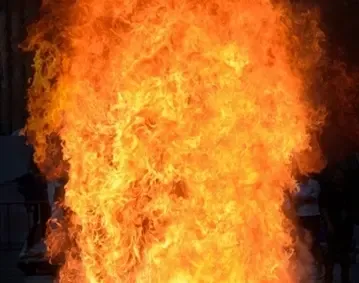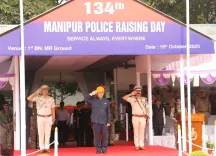What is the State of Despair in Chittagong Hills?

Synopsis
Key Takeaways
- Chittagong Hill Tracts are home to the indigenous Jumma people.
- These communities face systemic discrimination and violence.
- The 1997 Peace Accord remains poorly implemented.
- Indigenous women are particularly vulnerable to sexual violence.
- Political neglect continues to exacerbate their plight.
New Delhi, Oct 19 (NationPress) The Chittagong Hill Tracts, also known as Parbotto Chattogram, includes three districts: Rangamati, Khagrachhari, and Bandarban. This region is inhabited by Bangladesh's indigenous communities, which consist of 11 tribes collectively referred to as the Jumma. A remarkable 99 percent of this population identifies as minority groups, both ethnically and religiously, contributing significantly to Bangladesh's rich diversity.
Since the Partition of India, the Chittagong Hill Tracts, which became part of East Pakistan, have suffered from widespread discrimination and violence. The assimilation policies have led to the settlement of non-indigenous Bengalis and the displacement of the indigenous population under development pretenses.
The special status of the CHT, revoked in 1963, has not been restored post-1971 liberation, as assimilation policies continued. Although the 1997 Peace Accord was signed, the indigenous identity of the Jumma remains a contentious issue, with the term 'adivasi' (indigenous) lacking legal recognition.
Political instability in Bangladesh since Sheikh Hasina's departure has disproportionately affected the country’s religious and ethnic minorities. The rise of religious radicalism has fueled a wave of majoritarian politics targeting these groups, undermining their beliefs and cultural identities, despite the presence of an indigenous adviser, Supradip Chakma, in the Chittagong Hill Tracts Affairs.
The situation has worsened with the interim government’s complicity and the involvement of the Bangladesh Army. Last September, violence erupted in Khagrachhari following the mob lynching of an ethnic Bengali settler, leading to attacks on indigenous properties and resulting in casualties and injuries.
Provocative hate speeches by Muslim fundamentalists, amplified via social media, incited the violence, with accusations against the Bangladesh Army for supporting Bengali settlers against the Jumma. Reports from the Parbotto Chattogram Jana Samhita Samiti indicate over 200 human rights violations by security forces, including illegal land grabs and assaults on indigenous properties.
Despite some reforms initiated by the interim government, the indigenous population remains largely ignored, despite Bangladesh's push for pluralism. The implementation of the Chattogram Peace Accord has seen no significant progress, even as a monitoring committee was formed.
In January, the National Curriculum and Textbook Board capitulated to pressure from fundamentalists, removing the term 'Adivasi' from school materials, prompting protests that were met with violence from security forces—a stark contradiction to the notion of an inclusive Bangladesh. The ongoing discussions about the July Declaration have also neglected indigenous issues.
The past year has seen a troubling increase in sexual violence against indigenous women in the CHT, with a high rate of rape and attempted rape incidents. The Kapaeeng Foundation reports that of 24 incidents against ethnic women this year, 21 occurred in the CHT, highlighting a systemic issue. Victims face a culture of impunity that discourages them from seeking legal recourse.
The recent events in Khagrachhari, sparked by the gang-rape of an indigenous schoolgirl, led to protests that were violently suppressed by security forces, resulting in fatalities and injuries among indigenous people.
Attacks on indigenous properties by Bengali settlers have escalated, believed to be coordinated with military support as the CHT experiences increased militarization. These protests reflect widespread frustration over governmental neglect of indigenous issues.
The interim government and the Bangladesh Army's response has been to deflect blame onto external forces, particularly implicating India in inciting unrest. This narrative has led to internal dissent within political parties and raised concerns regarding the integrity of investigations into these matters.
As Bangladesh's political landscape transforms, the Chittagong Hill Tracts remain in turmoil. The ongoing violence and discrimination have intensified under the interim government, with the indigenous community facing increased land seizures. The hope for implementing the Chattogram Peace Accord seems ever more distant as political leaders continue to pay lip service to indigenous rights. In this evolving Bangladesh, the hills persist in a state of despair.








